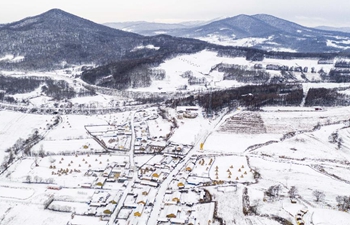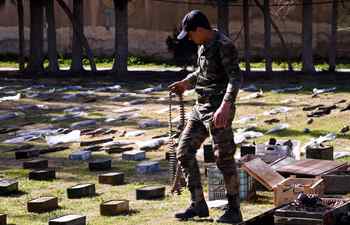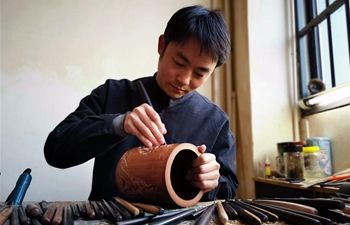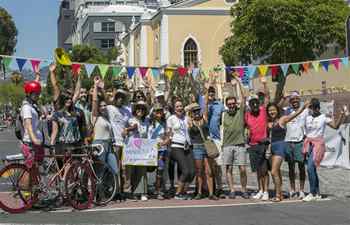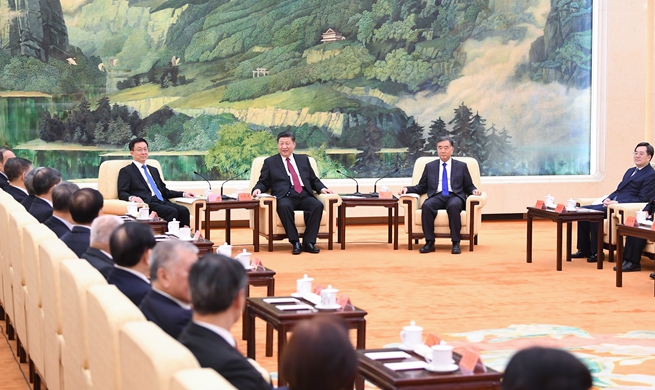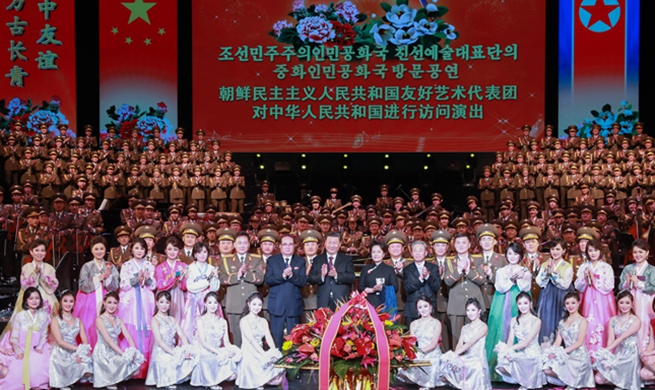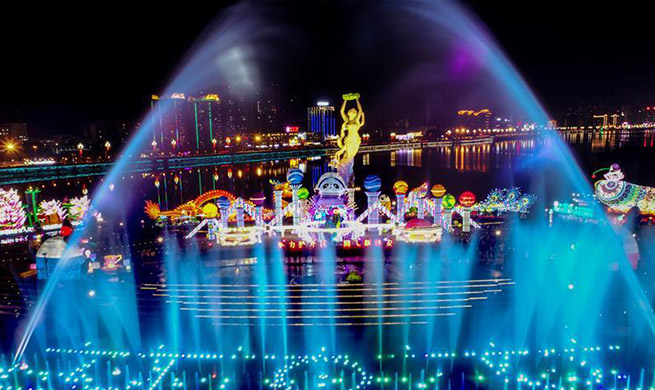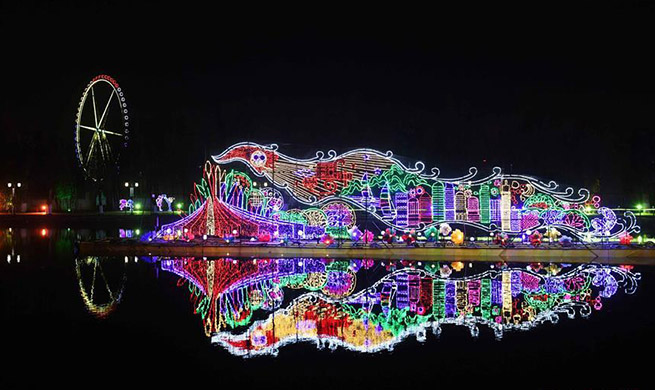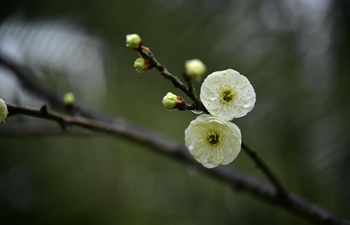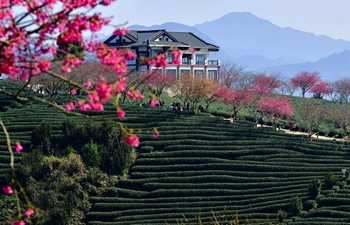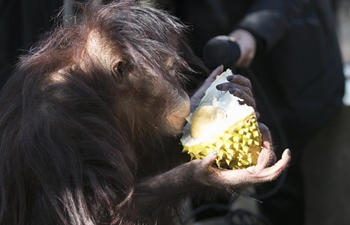by Mahmoud Darwesh, Najla Hamdy
TRIPOLI, Jan. 29 (Xinhua) -- The eastern Libyan towns Jikharra, Awjila, and Jalu, home to 30,000 people, suffer from poor environmental conditions described by officials as "disasters," as a result of nearby oil and gas operations.
Swamps of oil are scattered in the area, which are called by locals as "poisonous wells."
The three towns are the country's richest areas in oil, containing dozens of oil wells. However, they suffer from pollution due to absence of attention from authorities, locals said.
"The damage in the area is not limited to the environmental and agricultural side, but also to the health side. Gas emissions from the oil operations cause many diseases, including cancer and severe eye inflammation," said Salhin al-Awammi, head of the Jikharra Municipal council.
Al-Awammi said that many severe eye inflammations were reported in the area recently as a result of gas emissions, and local authorities did not respond to repeated calls for help.
Locals claimed that oil companies conduct explorations in farmers' lands without any compensations, causing lasting damage to the people.
Mohamed Saleh al-Hamdi, a farmer, said that Germany's Wintershall drilled an oil well in his land and caused great damage to his family, without providing any compensation.
"My whole farm is damaged and the state did not compensate me. Nearby houses have been affected by oil operations but the authorities ignore us. Our sons did not get employed in these oil operations," al-Hamdi told Xinhua.
Al-Hamdi and many other locals of the area are waiting for the government to find a solution for the pollution problem.
Libyan economy is mainly based on oil revenues. The country's oil sector suffered from years of armed conflict and repeated closures of oil fields and ports by militants and protesters.
Libya has been suffering insecurity, chaos and political division since the fall of former leader Muammar Gaddafi's regime in 2011.
Despite signing a UN-sponsored political agreement by the Libyan rival parties in 2015, Libya remains politically divided between eastern and western authorities, both competing for legitimacy.
